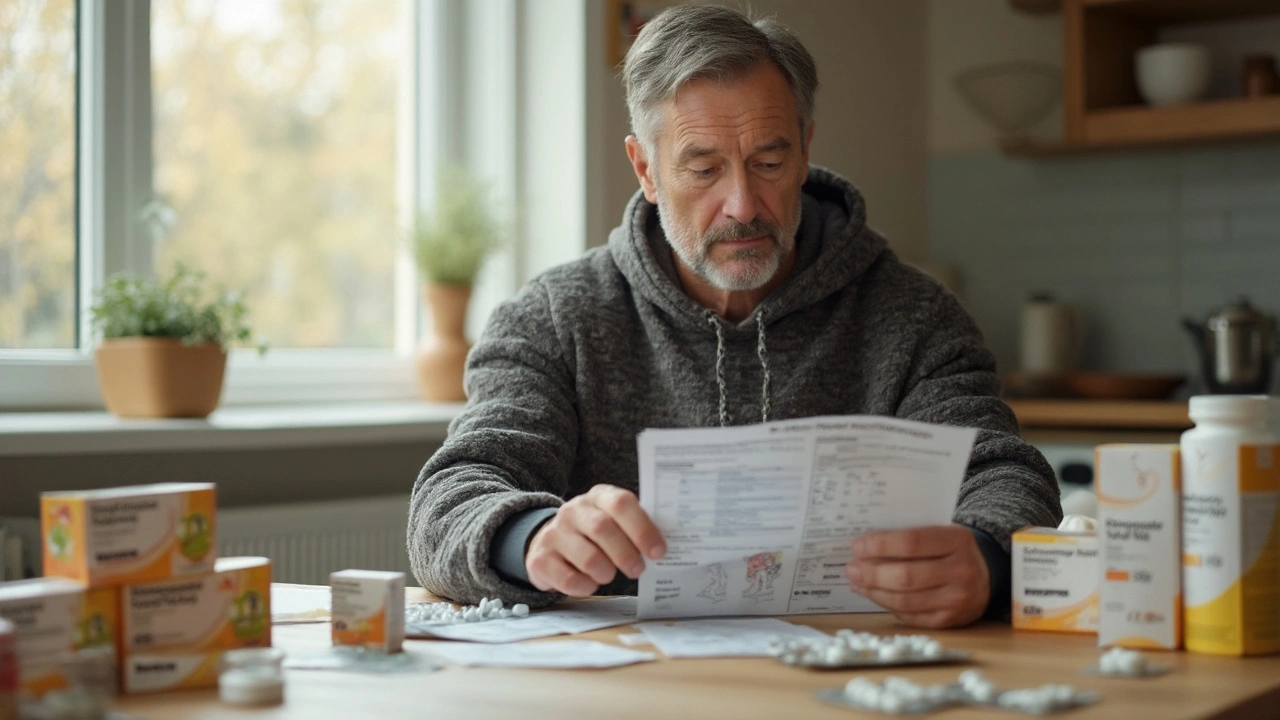PPI Alternatives: Simple Ways to Tame Acid Reflux
If you’ve tried proton pump inhibitors (PPIs) and hate the side effects or just want a break, you’re not alone. There are plenty of other tools that can calm stomach acid without putting your body on a high‑dose chemical regimen.
Over‑the‑Counter Options That Actually Help
The first line of defense is often an H2 blocker like famotidine (Pepcid) or ranitidine (Zantac). These meds reduce acid production, but they work less aggressively than PPIs, so you’re less likely to feel bloated or get nutrient‑absorption issues. Antacids such as Tums, Maalox, or calcium carbonate tablets neutralize the acid that’s already in your stomach, giving fast relief for sudden heartburn.
Another cheap and safe choice is alginate‑based products (Gaviscon). They create a foam barrier on top of your stomach contents, stopping acid from bubbling up into the esophagus. For many people, taking an H2 blocker in the evening plus an antacid when symptoms flare works better than a daily PPI.
Lifestyle Tweaks That Cut Acid at the Source
Food and habits drive most reflux episodes. Cutting back on coffee, chocolate, spicy dishes, and fatty meals can drop your acid levels dramatically. Try to eat smaller portions and wait at least two to three hours before lying down—gravity is a simple but powerful reflux blocker.
Losing even five to ten pounds often reduces pressure on the stomach and lowers the chance of acid splashing back up. If you smoke, quit; nicotine relaxes the lower esophageal sphincter, making leaks more likely. And don’t forget to lift your head of the bed by six inches; a slight incline keeps acid where it belongs while you sleep.
For those who like natural remedies, chewable ginger or a cup of chamomile tea after meals can soothe the gut lining. Apple cider vinegar (a tablespoon diluted in water) works for some folks, but start low and watch how your body reacts.
When to Talk to Your Doctor
If over‑the‑counter meds and lifestyle changes don’t tame the burn, a short course of an H2 blocker or a prescription antacid might be needed. Your doctor can also check for underlying issues like gallbladder problems or hiatal hernia that mimic reflux.
Remember, stopping PPIs abruptly can cause rebound acid hypersecretion. Tapering down under medical supervision is the safest route.
Bottom line: you have plenty of options beyond PPIs—mix and match meds, diet tweaks, and simple habits to find what keeps your chest comfortable without relying on a heavy prescription.
